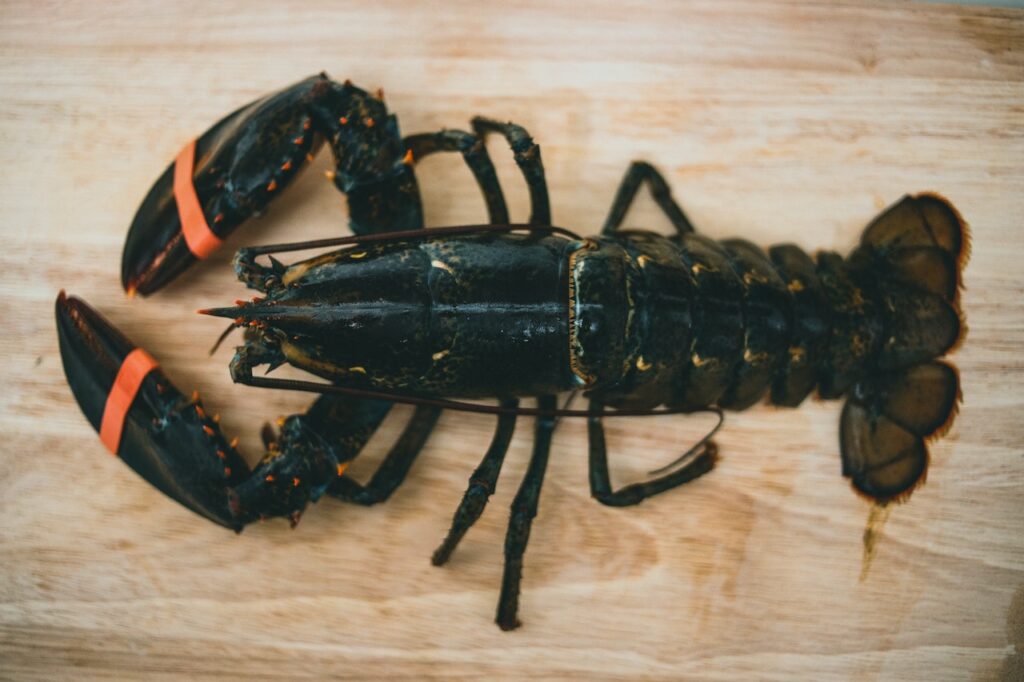The topic of whether lobsters feel pain when boiled has been a subject of debate and concern for years. Images of lobsters being submerged in boiling water have led to questions about their sensitivity to pain and ethical treatment. In this blog post, we’ll explore the scientific evidence behind the controversial topic and shed light on the truth about lobsters and their ability to experience pain.
The Nociceptors Debate
Nociceptors are specialized sensory neurons that detect potentially harmful stimuli, leading to the perception of pain in many animals, including humans. However, their presence in lobsters and other crustaceans has been a topic of scientific investigation. While some studies suggest that lobsters possess nociceptors, others argue that their nervous systems are not developed enough to experience pain in the same way as higher-order animals.
Lobster Anatomy and Nervous System
To better understand whether lobsters can feel pain, it’s essential to delve into their anatomy. Lobsters have a decentralized nervous system, meaning they lack a centralized brain like mammals. Instead, they possess ganglia or clusters of nerve cells, distributed throughout their bodies. This decentralized structure has raised questions about their capacity to experience pain similarly to vertebrates.
Furthermore, unlike mammals, lobsters lack the brain regions responsible for emotional experiences linked to pain. This indicates that even if they can detect harmful stimuli, their response is likely more reflexive and not driven by conscious suffering.
Physiological Responses
When lobsters are exposed to noxious stimuli, they exhibit physiological responses, such as tail-flipping and attempting to escape the source of the stimulus. Some argue that these responses are indicative of the lobster’s ability to perceive pain. However, it’s important to note that these behaviors are more likely automatic reflexes rather than expressions of suffering.
Scientific Studies
The scientific community has conducted several studies to examine the question of whether lobsters experience pain. While some research suggests that lobsters do respond to noxious stimuli, the interpretation of these reactions varies. Critics argue that these responses are similar to the automatic withdrawal reflexes seen in other animals with decentralized nervous systems, indicating a lack of conscious pain experience.
Ethical Considerations and Alternatives
Regardless of the scientific debate surrounding lobster pain perception, ethical concerns about their treatment persist. As society becomes increasingly concerned about animal welfare, it is essential to explore alternatives to boiling lobsters alive.
Some humane alternatives include stunning lobsters before cooking or using other methods like electrical stunning or chilling to euthanize them swiftly and humanely. Additionally, purchasing lobsters from reputable sources that follow humane harvesting and processing practices can help support responsible fishing and handling.
In conclusion, the question of whether lobsters feel pain when boiled remains controversial and inconclusive. While lobsters do exhibit responses to harmful stimuli, these reactions are likely automatic reflexes rather than indicators of conscious suffering. Their decentralized nervous system and lack of brain regions responsible for emotional experiences further support the argument against their ability to experience pain as mammals do.
However, regardless of the scientific debate, ethical concerns surrounding the treatment of lobsters are valid. As a society, we should strive to explore more humane alternatives to boiling lobsters alive and support responsible practices in the fishing and food industries. By doing so, we can demonstrate our commitment to animal welfare and responsible stewardship of the natural world.
FAQs
- Q: Do lobsters have nociceptors, and does that mean they can feel pain when boiled? A: While some studies suggest that lobsters possess nociceptors, their nervous system is decentralized, lacking the brain regions responsible for conscious emotional experiences linked to pain. As a result, their reactions to harmful stimuli are likely more reflexive rather than indicative of conscious suffering.
- Q: What are some of the physiological responses exhibited by lobsters when exposed to noxious stimuli? A: When lobsters encounter noxious stimuli, they may exhibit behaviors like tail-flipping and attempting to escape from the source of the stimulus. However, these reactions are akin to automatic reflexes and do not necessarily imply conscious pain experience.
- Q: Are there any scientific studies that prove whether lobsters feel pain when boiled? A: The scientific community has conducted numerous studies on this topic, but the interpretation of the results varies. Some studies suggest that lobsters do respond to harmful stimuli, while others argue that their responses are not indicative of conscious pain experience. The debate remains inconclusive.
- Q: How can we address ethical concerns related to boiling lobsters alive? A: While the scientific evidence on lobster pain perception is inconclusive, ethical concerns remain valid. To address these concerns, we can explore more humane alternatives, such as stunning lobsters before cooking or using methods like electrical stunning or chilling for humane euthanization. Supporting reputable sources with responsible fishing and processing practices can also contribute to ethical treatment.
- Q: What are some alternatives to boiling lobsters alive? A: Several humane alternatives exist to boiling lobsters alive. One option is to stun the lobster before cooking using various methods. Electrical stunning or chilling can help ensure swift and humane euthanization. Additionally, supporting reputable suppliers that follow ethical harvesting and handling practices can promote responsible treatment of lobsters in the food industry.



